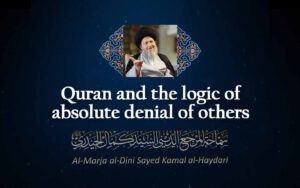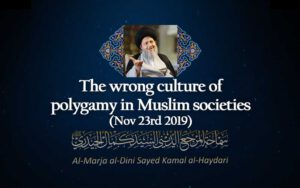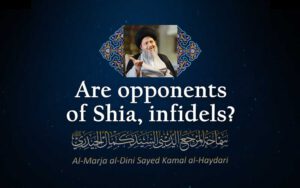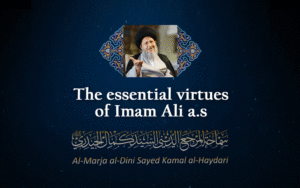458 words approximate reading time 3:30 min
Every person that wants to be a religiousauthorityin the time of the great occultation, he must be a comprehensive authorityin religious knowledge completely and only specializing in permissibility and prohibition (Jurisprudence), is not enough.
And from here in the new theory of comprehensive authority presented, the jurisprudential authority has been distinguished from religious authority. It is because religion consists of beliefs, ethics and jurisprudential laws, for this reason the person that can be a religious authority should be able to deduce complete comprehensive understanding of religion not only in a part of religious teachings. A person who only knows jurisprudence is a jurisprudential authority, and a person who only knows philosophy is an authority in philosophy, but not one of them is a religious authority, because religion does not only contain discussions about jurisprudence and philosophy, but only the person who is a religious authority is he who reached the level of deduction (الاجتهاد) and specialization in all parts of religious knowledge.
Here we mean in jurisprudence, minor jurisprudence (الفقه الاصغر), that’s why we said it is not sufficient, that he is an authority only in Islamic jurisprudence and the most knowledgeable scholar in permissibility and prohibition. But instead he should be the most knowledgeable scholar of the highest level and specialist in all religious knowledge. This is the exact thing which we witnessed from former religiousauthorities. This is the very thing we witnessed at the time of minor occultation or close to it. Therefore, you see that Sheikh Tusi was not only a jurist, but he was a jurist, interpreter and also a theologian. While we look at the works of sheikh Tusi we find out that he was not only a writer of books on jurisprudence and principles of Islamic law, but he also had works in beliefs, Quranic exegesis and answers to doubts and other issues. But rather before that, we see that before Sheikh Mufid was a jurist he was a theologian. This content indicates that the authority inherently and according to its general framework is restricted to scholars devoted to comprehensive religious knowledge.
This situation discontinued 200 years ago. Since then, the establishment of Howza ’lmiyah, specifically in Najaf, followed one dimensional trend and religious authority was only devoted to those scholars specialize in minor jurisprudence (permissible and prohibited issues). Without having to deal with other epistemic matters of religion. I’m not saying that they were not experts in other fields of Islamic knowledge, not having any information, but I want to say, focus, effort, books and their official lessons were in one epistemic dimension, meaning jurisprudence and principles of Islamic law.
Source: The book “Religious authority and Vision Ahead”



